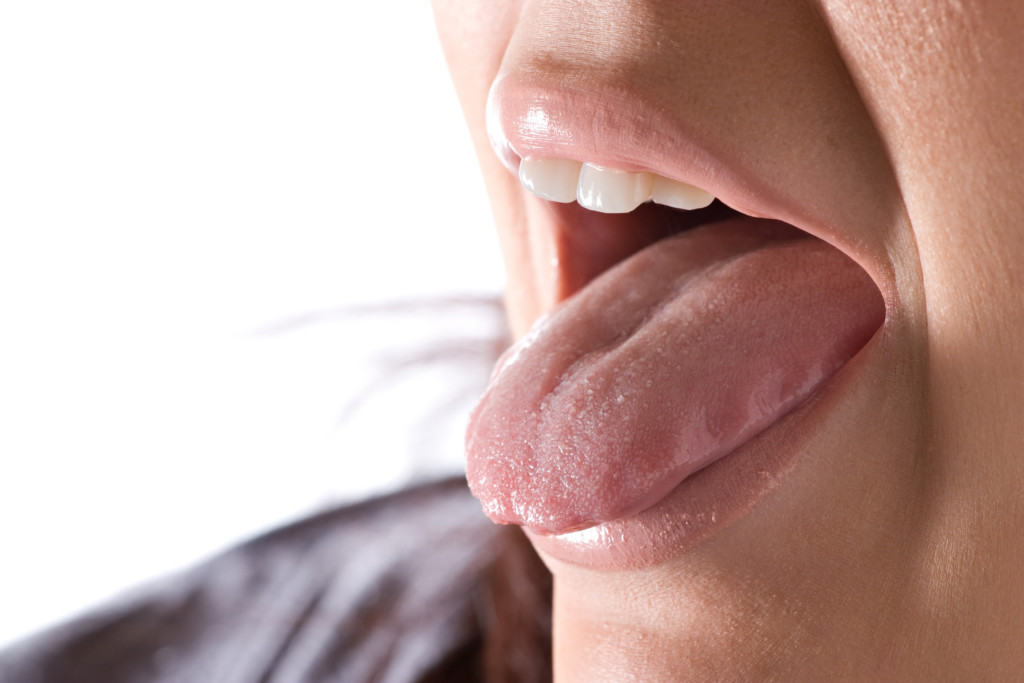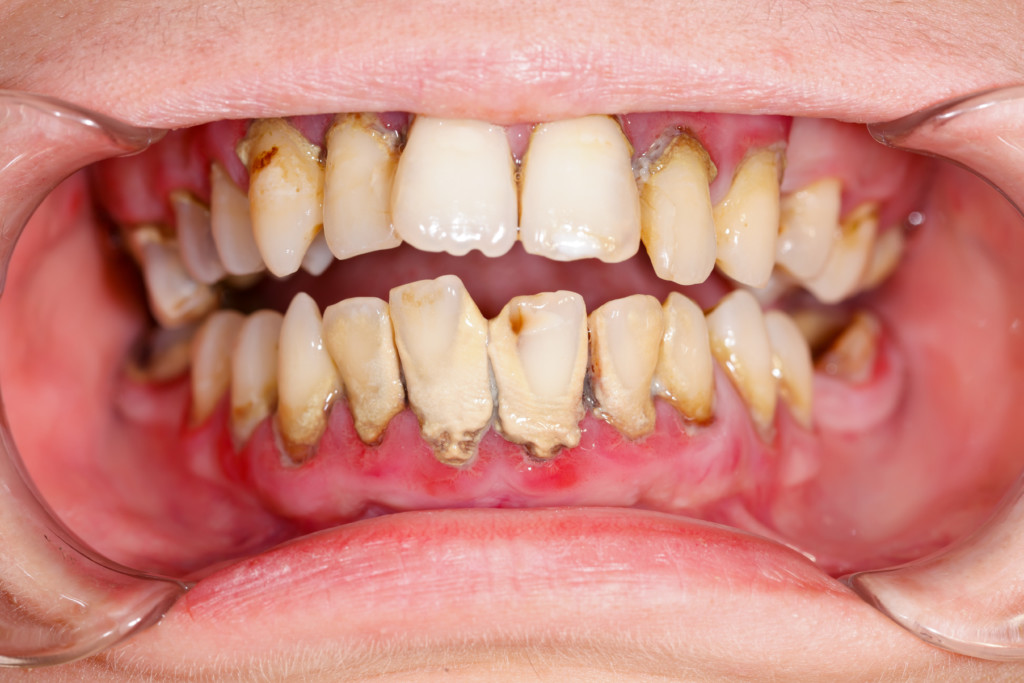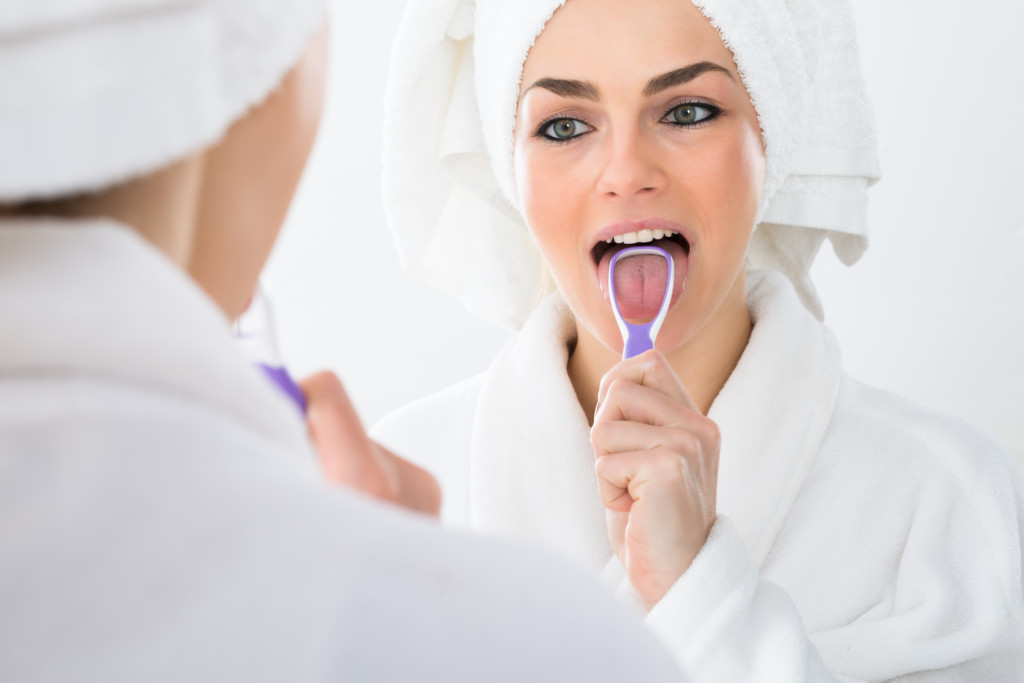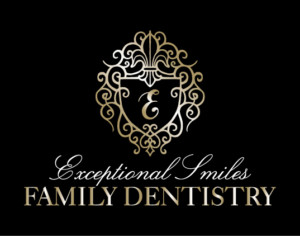
Closeup of a young woman sticking out her tongue.
Halitosis, or bad breath, affects nearly a third of Americans. People in the U.S. spend $10 billion per year on breath mints, gum, mouthwashes and pills to try and get rid of bad breath. But those things only cover it up—it’s far more effective to determine the cause of halitosis so that you can eliminate it for good.
Here are 5 possible causes of bad breath and Dr. Eye’s tips for preventing them.
1. Bad Oral Hygiene
The most common cause of bad breath is poor or
inefficient oral hygiene. Bad breath often comes from the gases produced by bacteria in your mouth, which are much more prevalent when you don’t clean your teeth properly.
To prevent bad breath due to leftover food particles, make sure to brush twice a day for two minutes, floss daily, and use a tongue scraper to remove bacteria from your tongue and cheeks.
2. Diet

Smiling nutritionist in her office, she is holding a green apple and showing healthy vegetables and fruits, healthcare and diet concept
What you eat can have a huge effect on your breath, and not just right after dinner. Once the food is absorbed into your bloodstream, the sulfurous compounds that cause bad breath are expelled by your lungs. This means that the odors from foods you eat can stick around for hours afterwards, sometimes even the next day.
We’re not recommending eliminating onions and garlic from your diet entirely, but cutting back on strong smelling foods can help prevent bad breath. If you don’t want to change your diet, make sure to brush and floss immediately after eating these foods to get rid of any leftover particles.
3. Gum Disease

Human mouth before dental treatment plaque on teeth.
Chronic bad breath is often a symptom of
gum disease. Bacteria trapped below the gumline causes gum disease, but it also produces sulfur compounds that make your breath smell bad.
If your halitosis is caused by gum disease, a deep cleaning can help. If the gum disease is advanced, a more in-depth procedure may be necessary. Regardless, treating the underlying condition should go a long way towards getting rid of bad breath.
4. Medical Condition
It doesn’t happen often, but sometimes bad breath can be caused by an infection or condition in another part of the body. Heartburn, diabetes, bronchitis, or infection in the sinuses or throat can cause halitosis.
If you have a clean bill of health at your dental checkup and still can’t figure out the reason for your bad breath, you may need to see a physician to determine the underlying cause.
5. Dry Mouth
When your mouth doesn’t produce enough saliva, bacteria builds up in your mouth at a much faster rate. That’s why your breath smells so bad when you first wake up—you produce a lot less saliva when you’re sleeping.
Dry mouth can often be helped by chewing gum, drinking more water, or rinsing with a mouthwash made for dry mouth sufferers. If none of these things help, be sure to bring it up at your next dental checkup.

Close-up Of A Woman Looking In Mirror Cleaning Her Tongue
A word from Dr. Eye:
Most of the time bad breath can be solved with brushing 3x times a day with a mechanical toothbrush and flossing before bed. You can use Listerine to help curb the bad breath but too much Listerine will dry your mouth out and have the opposite affect by causing more bad breath. I always recommend a tongue scraper to those who have bad breath and advise my patients to use it after brushing. Remember to drink at least 8 8oz. glasses of water a day to promote good health and good breath.









